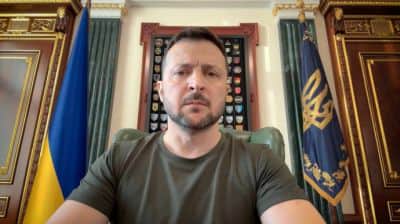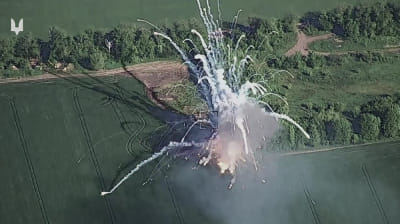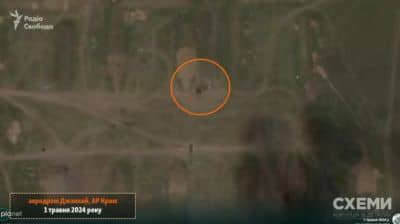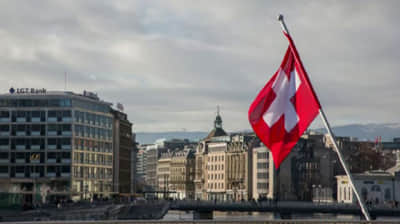South Korea says North Korea may sell new type of ballistic missiles to Russia
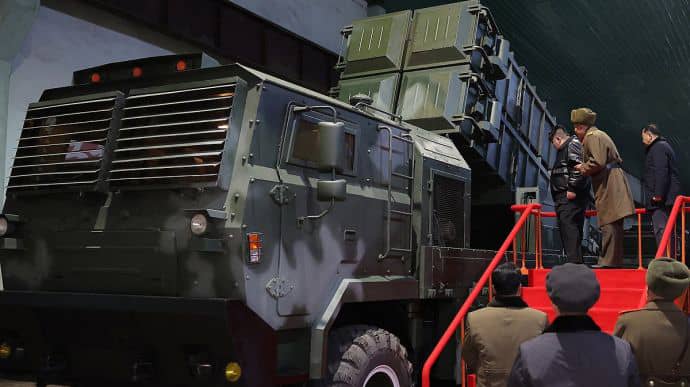
Shin Won-sik, Minister of Defence of South Korea, has said that North Korea may sell Russia new types of tactical missiles in addition to the alleged supply of short-range ballistic missiles for Moscow's use in the war with Ukraine.
Source: Shin Won-sik in an interview with Yonhap
Details: Shin Won-sik also said that North Korea could test a solid-fueled intermediate-range ballistic missile as early as this month and could launch a long-range missile to escalate already high tensions ahead of key elections in South Korea and the United States.
Shin Won-sik stated that the weapons system, revealed by North Korean state-owned media outlets during leader Kim Jong Un's visit to a munitions factory earlier this week, appeared to be short-range ballistic missiles capable of carrying tactical nuclear weapons.
Quote: "North Korea first test-fired a close-range ballistic missile in April 2022. It is a new type of weapon with an estimated range of 100-180 kilometres."
Details: Defence Ministry of South Korea described North Korean missiles mounted on mobile launchers as short-range ballistic missiles, which are about 5 metres long and have a range of less than 300 kilometres.
Shin suggested that Kim's recent visit to munitions factories could be linked to North Korea's possible arms sales to Russia as the two countries strengthen their military cooperation.
Quote: "North Korea said it will deploy (CRBMs) with front-line troops. Given the recent arms trade, (I think) North Korea could sell them to Russia."
More details: Shin hinted at North Korea's alleged sale of KN-23 short-range ballistic missiles to Russia.
Recently, the White House declassified intelligence data showing that North Korea has provided Russia with ballistic missile launchers and several ballistic missiles with a range of 900 kilometres.
Shin estimated that as of the end of December, North Korea had provided Russia with about 5,000 weapons containers that could hold about 2.3 million 152mm shells or about 400,000 122mm artillery shells.
The South Korean minister expressed concern over Russia's alleged provision of technological assistance to North Korea's weapons programme in exchange for arms trade, including Pyongyang's spy satellite.
"North Korea's spy satellite launched in November is considered rudimentary. If Russia continues to offer technological assistance, the satellite's capability is expected to improve," Shin said.
The minister said that North Korea is likely to stage various forms of provocations ahead of South Korea's parliamentary elections in April and the US presidential election in November to protect its strategic interests.
Shin said Pyongyang was preparing to test launch a new type of intermediate-range ballistic missile after two tests of solid-fuel engines in November, weighing the possibility of launching it as soon as this month.
Seoul's officials believe Pyongyang's developing solid-fuel intermediate-range ballistic missile, which is harder to detect because of its shorter preparation time, could potentially target US military bases in Japan and Guam.
Shin also suggested that North Korea could launch normal-angle intercontinental ballistic missiles to test atmospheric entry technology and the ability to deliver precision strikes.
Last year, Pyongyang launched five intercontinental ballistic missiles, including three Hwasong-18 solid-fuel missiles, which were launched at high angles and flew about 1,000 km.
Experts believe that if launched on a normal trajectory, these intercontinental ballistic missiles can reach a distance of 12,000-15,000 km, demonstrating the ability to hit the US mainland.
"As all of the ICBMs were launched at lofted angles, the reliability of their reentry technology and precision strike capabilities have not yet been verified. This year, there is a possibility of (ICBM) launches with the real range and at normal angles," he said.
Shin said that buffer zones created under the 2018 inter-Korean military accord "no longer exist" following North Korea's latest artillery fire near the tense western maritime border.
Since last month, North Korea has been rebuilding some of its destroyed guard posts in the demilitarised zone with concrete structures.
Shin said the North could also conduct a seventh nuclear test to create a "smaller, lighter" nuclear weapon, adding that its Punggye-ri test site was ready to conduct a nuclear test "at any time".
The minister emphasised that North Korea's status as a nuclear power is unacceptable and should not be recognised, and its further pursuit of nuclear weapons and missiles will only lead to the strengthening of international sanctions.
Quote: "Nuclear development is not 'the sword of omnipotence' but 'a poisoned chalice' to Kim Jong-un and he should be aware of it," he said.
Background: On 8-9 January, the leader of North Korea (DPRK) Kim Jong Un inspected the work of the country's main military factories and made several threatening statements to South Korea, in particular, assured that in the event of a confrontation, he would turn it into ashes.
Support UP or become our patron!


